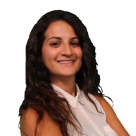The World Health Organization declared the outbreak of the novel coronavirus pandemic on March 11 and before the month was over, Douglas Fraser’s team out of Lawson Health Research Institute and Western University had already begun work on what would be one of three world-firsts in COVID-19 research accredited to the team by September.

The team, based out of London, Ont., is the first in the world to profile the immune system’s response to COVID-19, the first to identify mechanisms involved in blood-clotting in COVID-19 patients, and the first to come up with biomarkers that can help predict how severely ill a patient is likely to become.
The team’s findings have a worldwide impact, with J. Steven Alexander — molecular and cellular physiology professor at Louisiana State University Health Shreveport in Louisiana — saying the research “answers key questions related to COVID-19.”
“The Lawson investigators have found molecular signatures which reveal disease, its severity and perhaps most importantly, how well therapeutic treatments are working to combat this devastating illness,” he said.
- Ontario doctors offer solutions to help address shortage of family physicians
- Vaccine injury compensation fund gets additional $36M from feds
- Bird flu virus detected in U.S. grocery store milk. FDA says supply still safe
- Can U.S. states ban abortions even in medical emergencies? Supreme Court weighs in
While the team is extensive and involves some different players in each individual research project, Global News is highlighting a handful of the researchers with a range of expertise who’ve worked on all of these groundbreaking discoveries.
Those key players include: an expert in applying artificial intelligence to real-world scenarios; a research associate who interacts with patients and gathers and processes samples; a physician and scientist whose research has focused specifically on patients in intensive care units; a researcher with a history of studying illness and injuries that impact multiple organ systems; and Fraser himself.
Douglas Fraser
“(The day starts at) typically 7 a.m. and depending what’s happening on any particular day or time, you just work straight through usually until about 6 p.m.,” he told Global News.
“Then in the evening when dinner’s done, the dishes are done, the kids are in bed, then usually it’s a laptop and you continue and you go from there. And that’s part of the day, just doing the COVID work, but then I also had my clinical responsibilities as well within the intensive care unit and the trauma service.”
He does manage to enjoy the little downtime he has, however, with family and in the quiet of cottage country.
“I’ve got four kids, my partner has two kids — we’re busy. They’re involved in athletics and all sorts of activities. Now, certainly, those have slowed down a little bit throughout this COVID thing, but we’re still active, we’re outdoors, we’re doing things. And any time we get up to cottage country, that’s a great relief.”
Fraser moved to London in 2003 after growing up and completing all of his studies in Alberta, training as both a clinician and a scientist. A major focus in his research has been on taking biological samples from patients with particular diseases or disorders and looking into the pathophysiology.
“So trying to understand why those diseases are occurring and what we can do to make them better.”
Because of that focus and specialization, when the coronavirus pandemic hit, Fraser and his team were in a unique position to pivot quickly to COVID-19 research.
“We all have pretty strong egos in this business. You have to because it can become pretty cutthroat — there’s a lot of competition, there’s only so much grant funding — so you have to push hard and you have to be aggressive. As a team, we’ve worked together, we’ve moved ahead very, very quickly and it does feel good.”
Mark Daley

One potentially unexpected member of Fraser’s team is Mark Daley, whose expertise lies in the areas of artificial intelligence (AI) and machine learning (ML).
His journey to research was a winding one, as he actually first pursued a career in music.
“I went to the Berklee College of Music in Boston because I wanted to be a professional musician. And I failed at that and realized that, you know, I’m a nerd at heart and I miss mathematics,” he told Global News.
“I went back to study computer science and math and thought I’d get a job after that but I was really fortunate to have a fantastic prof in third year who exposed me to research. And that’s sort of set the course for the rest of my life.”
Daley’s research in AI and ML focuses on understanding what makes it work and then applying it to real-world situations, like COVID-19.
The busy workweek for Daley is split between lab work at Western University and with CIFAR, formerly known as the Canadian Institute for Advanced Research, where he recently accepted a position as vice-president of research.
“My collaborator, Doug Fraser, who’s sort of the leader of the team here at Western, reached out very early on in March and said, ‘Look, we’re starting to get these patients and we’ve got some research questions. Are you interested in participating?'” he said during an appearance on London Live with Mike Stubbs on Global News Radio 980 CFPL.
“And of course, when you have skills to help society during a pandemic, the answer is yes.”
Stubbs said it sounded like “the calling together of superheroes” in a movie, which Daley agreed with.
“Not because I think we’re superheroes,” he said, “but because the good superhero movies are all about teams, right? ‘The Avengers.’ And the success here was Doug bringing together an interdisciplinary team.”
Carolina Gillio Meina

Research associate Carolina Gillio Meina has spent about eight years working with Fraser, gathering and processing samples.
“Just to give you an idea, Dr. Fraser is the leader of COVID research here at Victoria Hospital and he’s also the director of (Lawson’s Translational Research Centre) so this is how everything starts here,” she said.
“I also assist other physicians and other researchers at Victoria Hospital with different other research and also clinical trials.”
Gillio Meina had high praise for Fraser, saying that when spirits are low and team members are tired from working long hours, he maintains excitement about the projects and helps reinvigorate the team and remind them how important their work is.
“I remember every day coming to the lab and opening the screen to see, ‘How many patients do we need to do today?’ and see the whole screen full of patients with COVID infection.”
Emotion in her voice, she told Global News she never forgets about the people they’re trying to help.
“My commitment was to these families that they were having patients here and they were dying every day. I’m really grateful (to contribute to this research).”
Originally from Argentina, Gillio Meina came to North America for her masters and PhD. She came to London as a postdoctoral fellow at Western University.
“I love Canada, it’s the country I’m supposed to be (in),” she said.
“Part of the decision was because it’s difficult to do research in Argentina — there’s not much money involved for research. I want to be in research, that’s what I want to be all my life so it was the perfect decision for me to move to another country and I was, I guess, in the right place in the right moment.”
Marat Slessarev

With extensive experience looking at how stays in the intensive care unit impact patients, Marat Slessarev’s work was a perfect fit for COVID-19 research.
The researcher and intensivist originally left Toronto for London to train in critical care.
“I’m now a consultant, critical care physician at LHSC and a clinician-scientist in the department of medicine at Western University,” he told Global News.
When in the hospital, his shift can run from 7:30 a.m. to 5 p.m., but he often remains on call afterwards.
Outside of that, he focuses on his research work in three main areas: studying brain impacts on patients staying the in ICU and trying to improve outcomes, optimizing dialysis treatments for patients in the ICU, and contributing to inter-disciplinary research looking into how neurological function at the end of life impacts deceased organ donation.
“A lot of ICU research has been previously focused on improving survival,” he explained, “but I think over the last couple of decades, we’re starting to shift our focus more towards the quality of life after surviving critical illness.”
Slessarev became involved in COVID-19 research with Fraser as a direct result of his work with patients as a clinician and ICU physician, but he’s also involved in other COVID-related research projects through the Canadian Critical Care Trials Group.
“Through that, I got involved in a study that essentially aims to improve outcomes for COVID patients by using a different form of sedation, using inhaled anesthetics to sedate patients as opposed to IV sedatives.”
The initial lockdown was difficult for Slessarev and his family, who enjoy a lot of physically demanding activities, but once restrictions began to loosen they were able to get outside as much as possible, even taking up wakeboarding.
They were also lucky enough to have gotten a Labrador puppy in late February, before a state of emergency was first declared.
“Both my wife and I owned dogs when we were kids in our own parents’ homes and stuff. We’ve been married 12 years now and she’s been asking me for a dog ever since then and then finally now, I have two girls, so between the three of them, they finally twisted my arm,” he laughed.
“I love the guy now. So we have tons of fun. It’s been incredible and seeing the kids play with the puppy’s been great.”
Gediminas Cepinskas

Gediminas Cepinskas’s expertise lies in studying the physiological mechanisms behind “critical systemic disorders,” like sepsis, that impact multiple organ systems in the body. His group also looks at the potential of carbon monoxide in treating inflammation.
“Yes, you heard that right. That is carbon monoxide. The molecule has a very bad reputation and known worldwide as a silent killer,” he said.
“We were the first laboratory in Canada back in 2008, if I’m not mistaken, and still are the only centre in Canada that works on this project in an organized manner, and among a very few laboratories worldwide that initiated this kind of research.”
Cepinskas noted, though, that they are not using inhaled carbon monoxide, but specially designed molecules that release carbon monoxide and can be injected into tissues or the bloodstream.
With an inflammatory response sometimes leading to a dangerous cytokine storm situation in patients with COVID-19 (when the body’s immune response overreacts to the virus), Cepinskas’s existing specialization was a perfect fit for Fraser’s research.
Cepinskas’s journey to London began in Lithuania, where he received his doctor of veterinary medicine degree and PhD before doing his postdoctoral fellowship at Louisiana State University Medical Center in Shreveport, La.
“After that in 1995, me and my former supervisor we were recruited to come to London, to the Victoria Hospital Research Institute at that time.”
As for life beyond the pandemic, Cepinskas struck an optimistic tone, saying he’s “a true believer in science.”
“Now we know much more about it. We all adjusted our lives accordingly. We adapted to the new normal. And I have no doubt that the potential therapies based on this work, and in particular the development of vaccine when it comes to the biomedical aspect of COVID-19, will be developed and available to all of us. At the end of the day I think COVID-19 turned into the ‘world research project’ with the best minds in the field working nonstop on it,” he said.
“So I’m very optimistic in this regard that despite all challenges, sooner or later our lives will go back to the old normal.”










Comments